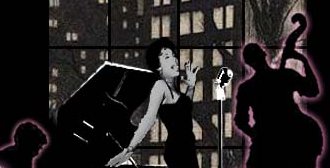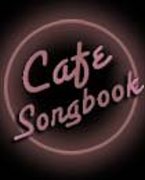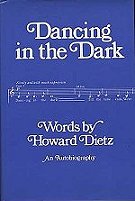Welcome toCafe SongbookInternet Home of the |
 |
 |
| Home || Songs || Songwriters || Performers || Articles and Blogs || Glossary || About Cafe Songbook || Contact/Submit Comment | |
| Search Tips: 1) Click "Find on This Page" button to activate page search box. 2) When searching for a name (e.g. a songwriter), enter last name only. 3) When searching for a song title on the catalog page, omit an initial "The" or "A". 4) more search tips. | |
Ralph Rainger |
||||
|
Basic InformationBorn: Ralph Reichenthal, October 7, 1900, New York City (raised in Newark, New Jersey where he graduated from Barringer High School, Jerome Kern's alma mater) Died: October 23, 1942 (age 42) in a plane crash near Palm Springs, California Primary songwriting role: composer; also a pianist, arranger, and originally, and briefly, a lawyer Co-writers: chiefly Leo Robin. For songs written with him and 14 others, view the DBOPM database. |
|||
Overview and Commentary: |
|
Excerpted from "Another Who's Been Unjustly Forgotten" (The full article can be fround at:
According to Gary Giddins in his biography of Crosby, "Love in Bloom" was almost pulled from She Loves Me Not by Paramount executives who believed it was too sophisticated for the general public. This might not have had much effect on Crosby's future but it certainly would have impacted the public's connection to Benny, who used the piece for his mock violin playing most likely because it had a certain classical air about it, and, of course, for the theme that marked his every appearance.
|
For years, Jack Benny opened his CBS radio and television broadcasts with "Love in Bloom." The comedian's violin butchery of his theme song became a running coast-to-coast Sunday night gag. As a result, the piece became even more famous than Bing Crosby had made it with his hit record in 1934. Generations of listeners and viewers heard Bob Hope close his NBC shows with "Thanks for the Memory," which he introduced in a movie, "The Big Broadcast of 1938." The song was inseparable from Hope's career. Ralph Rainger, the man who wrote those songs, was a pianist and recovering lawyer from Newark, N.J., who also composed such standards as "Easy Living," "If I Should Lose You," "Here Lies Love," "Moanin' Low," "June in January," "Please" and "Blue Hawaii," most often with lyricist Leo Robin. Rainger and Robin turned out dozens of songs for Hollywood movies. They were frequently on the hit parade with Rodgers and Hart, Cole Porter and the Gershwins. George Gershwin died at age 38, Rainger at 41. But while Gershwin's fame increased after his death, Rainger's name faded. With their beguiling melodies and challenging chord progressions, Rainger's works are frequent vehicles for improvisation. Yet, in my experience, most musicians who play those songs respond with puzzled looks when asked who wrote them. That might have been the case with bassist Chuck Berghofer, pianist Jan Lundgren, drummer Joe La Barbera and the incomparable vocalist Sue Raney until producer Dick Bank recruited them to record the CD "The Film Music of Ralph Rainger" (Fresh Sound). Released in November, it is the first all-Rainger album since pianist Jack Fina managed to reduce Rainger's tunes to dreary cocktail music in a 1950s LP. Mr. Lundgren, a brilliant Swedish pianist, plumbs the songs' harmonic souls. He illuminates even the prosaic "Blue Hawaii," which -- to Rainger's horror -- became a huge hit in 1937. "It will disgrace us," he told Robin. "It's a cheap melody . . . a piece of c-." Rainger was born Ralph Reichenthal in New York City in 1901. Shortly after his birth, his parents moved to Newark. As a teenager, the already accomplished pianist won a scholarship to the Institute of Musical Art in New York. But his parents pressured him to become a lawyer and he succumbed, joining a prominent Newark firm in 1924. For two years he stewed, at $50 a week, in a profession he loathed. In 1926, Reichenthal took an offer of $125 a week to be half of a twin-piano team in the Broadway revue "Queen High" and said goodbye to the law. He played piano in several bands, including Paul Whiteman's, and he and fellow pianist Edgar "Cookie" Fairchild moved through a series of revues. Sensing fame in the offing, Reichenthal thought his last name was too cumbersome. He borrowed the maiden name of his new bride, the former Elizabeth Rains, and altered it to Rainger. His big break came in 1929 with The Little Show, starring Fred Allen, Clifton Webb and Libby Holman. He wrote a song for it and told his wife that if "Moanin' Low" wasn't a hit, he would go back to practicing law. Holman's blowsy performance of the song, with lyrics by Howard Dietz, stopped the show. Her recording of it was a sensation. [See below.] Paramount Pictures soon tapped Rainger as a staff composer and paired him with Robin. From 1932 to 1940, in their cramped office on the Paramount lot, and later at Fox, they created one hit after another. Their songs were in seven Bing Crosby pictures. The biggest name in popular music, Crosby recorded 13 Rainger-Robin songs. Billie Holiday recorded five . . . . Read the full article at The Wall Street Journal on-line. |
The success of "Moanin' Low" is what moved Rainger into the songwriting business on a permanent basis. The song's success impressed Paramount enough to sign him and get him to Hollywood in the late spring of 1930 as a staff composer teamed with Leo Robin. When this happened, according to music critic Mark Gardner, author of the liner notes for the 2012 album The The Film Music of Ralph Rainger, "one of the great songwriting teams of all times was born." Gardner goes on to recount how Rainger and Robin quickly achieved their own success when two of the songs they wrote for the 1932 Bing Crosby film The Big Broadcast became hits: "Please" and "Here Lies Love." Paramount responded with a seven year contract for them and they never looked back proceeding to have songs in 53 Paramount films and subsequently in ten Fox movies. They were able to overcome the assembly line nature of the work in Hollywood studios of that era to produce many great songs, even for films that were of a lesser quality. Gardner analyzes the method they used to achieve this success:
Rainger had always had a desire to return to Broadway. In 1939, he and Robin did do a score for a Mary Martin vehicle that closed short of the Great White Way in New Haven, but even that did not discourage him. When their contract at Paramount expired, Rainger returned to New York but to no avail, so when feelers from M-G-M and Twentieth Century Fox came to him and Robin, he came back to Hollywood in August, 1940. By January, 1941, they were working for Daryl Zanuck at Fox, their first assignment the score for Moon over Miami. By the time of his death in a plane crash in 1942. (source: Mark Gardner essay in the liner notes for the 2008 album The Film Music of Ralph Rainger) |
|
|
Rainger and Robin were a M match made in Hollywood. Leo Robin had been working with Richard Whiting as a writing team at Paramount but after they completed, with Frank Harling, the songs for Monte Carlo" in 1930, including "Beyond the Blue Horizon," Robin and Whiting broke off their partnership ("without acrimony") and Robin returned to New York because his mother was ill. When he returned director Ernst Lubitsch. who liked Robin's work very much, "paired him with a gaunt Paramount pianist named Ralph Rainger. [They worked together first on The Big Broadcast of 1932 in which Bing Crosby sang their songs "Please," and "Here Lies Love."] Through the '30's Rainger and Robin wrote some of the most memorable movie songs, including 'June in January,' 'Easy Living' and 'Thanks for the Memory' (Marmorstein, p. 43). |
|
Rainger as Arranger and Vocal Coach In his autobiography, Howard Dietz recounts that after The Little Show (1929), he and his writing partner Arthur Schwartz, who together had written most of the songs for that show, wanted to do another revue with the same cast or at least the same three star performers: Clifton Webb, Libby Holman and Fred Allen. In 1930, with the backing of the producers Max Gordon and A. and L. Erlanger, Three's a Crowd came into being, previewing in Philadelphia. The Schwartz and Dietz song that became a standard was "Something to Remember You By." All the other songs were also by them except for one: "Body and Soul" with music by Johnny Green and words by Edward Heyman, Robert Sour and Frank Eyton. Dietz recalls that Libby Holman kept having problems with the song and something had to be done:
|
 Ken Bloom, The American Songbook: The Singers, the Songwriters, and the Songs, New York: Black Dog and Leventhal, 2005. |
Rainger and his most frequent co-writer Leo Robin both started out with ambitions to be lawyers, both leaving the law to try their hands at music. The two got together when they were under contract to Paramount in 1932, where they, like Johnny Burke and Jimmy Van Heusen after them, specialized in writing songs for Bing Crosby, such songs as "Please" and "Here Lies Love" for the 1932 movie The Big Broadcast. Other Paramount hits for the team were "One Hour with You," "June in January" and "With Every Breath I Take" both written for the 1934 film Here Is My Heart. They also wrote "Love in Bloom" (Rainger's melody becoming Jack Benny's theme song) for Crosby to sing in the 1934 film She Loves Me Not. Rainger and Robin moved to Twentieth Century Fox in 1939, three years before Rainger died in a plane crash in October 1942. The final films that included music by Rainger were Coney Island and Riding High, both form 1943 (Bloom, p. 280). |
 Wilfred Sheed, The House That George Built: With a Little Help from Irving, Cole, and a Crew of About Fifty |
Wilfred Sheed characterizes Rainger as an "intuitive and adaptable" songwriter -- "what you want in Hollywood." He seemed to be able, chameleon like, to compose the perfect song for the singer he was around at a given time. Sheed sees this as going back to his experience with Libby Holman and "Moanin' Low" in The Little Show in New York in the late twenties and going forward to his work for Bing Crosby at Paramount in Hollywood starting in the early thirties.
Sheed marvels at what time has done to Sheed's reputation by suggesting that someone with such a "huge stature" while he was around is so unknown today. He suggests an irony as the cause: He was so much in tune with his own times . . . to last into ours" (Sheed, pp. 190-191 hard-cover Ed.). |
| back to top of page | |
Cafe Songbook |
|||
|
|
||
Shirley Ross and Bob Hope introduce "Thanks for the Memory" with Shep Fields and His Orchestra in The Big Broadcast of 1938. |
|
||
| back to top of page | |||
|
|
|||||||||||||
| back to top of page | ||||||||||||||
Visitor CommentsSubmit comments on songs, songwriters, performers, etc.
Feel free to suggest an addition or correction. Please read our Comments Guidelines before making a submission. (Posting of comments is subject to the guidelines. Not all comments will be posted.) |
| To submit a comment, click here. |
Posted Comments on Ralph Rainger:
from Piano Guy (11/02/2015): Great tune with music by Ralph Rainger and lyrics by Leo Robin from the 1936 film Rose of the Rancho. Response (1) from Cafe Songbook: (11/04/2005) Dear Piano Guy, Thanks for reminding us what a good song "If I Should Lose You" is. Apparently we had lost site of it. As a result of your comment we will add a page for "If I Should Lose You" on the CafeSongbook.com site. When it is up we will drop you a line and a link. Response (2) from Cafe Songbook: (12/05/2005): It took us a while but here is our new page for the Rainger/Robin song "If I Should Lose You." |
| back to top of page |
Credits(Ralph Rainger page) |
Credits for Videomakers of videos used on this page:
Borrowed material (text): The sources of all quoted and paraphrased text are cited. Such content is used under the rules of fair use to further the educational objectives of CafeSongbook.com. CafeSongbook.com makes no claims to rights of any kind in this content or the sources from which it comes.
Borrowed material (images): Images of CD, DVD, book and similar product covers are used courtesy of either Amazon.com
Any other images that appear on CafeSongbook.com pages are either in the public domain or appear through the specific permission of their owners. Such permission will be acknowledged in this space on the page where the image is used.
For further information on Cafe Songbook policies with regard to the above matters, see our "About Cafe Songbook" page (link at top and bottom of every page). |
| Home || Songs || Songwriters || Performers || Articles and Blogs || Glossary || About Cafe Songbook || Contact/Submit Comment | |
© 2009-2018 by CafeSongbook.com -- All Rights Reserved |





